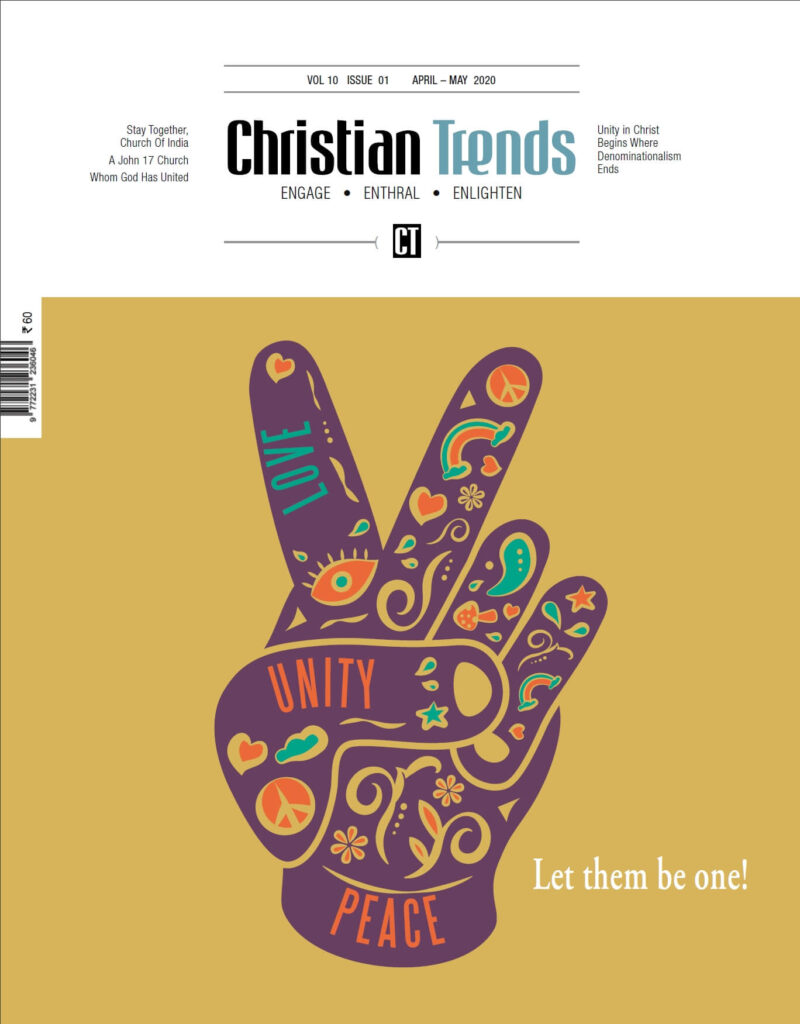It was during an era when nations were ratifying peace treaties to end colonial wars that the First World War broke out. When it ended, governments thought that what was needed was a more encompassing treaty among nations and so the League of Nations was formed. About two decades later a bigger and worse World War broke out that ended with the use of atomic bombs. Then the statesmen of the world felt that what the world needed was a better and more inclusive community of nations, and so the United Nations Organization was formed. Everyone knows how unsuccessful the UN has been in peacekeeping. Even though wars haven’t been termed “world wars”, there have been ever so many wars on so many fronts since then. There have been many more war casualties than the Second World War. And now we have two mad men saying that they have nuclear bombs that they can launch at the push of a finger. The Bible has got it right: “While people are saying, ‘Peace and safety,’ destruction will come on them suddenly” (1 Thess 5:3).
In this culture of war, in 1971, John Lennon, who was formerly one of the Beatles, gave the world the song “Imagine”:
Imagine there’s no heaven…
Imagine all the people
Living for today...
Imagine there’s no countries
It isn’t hard to do
Nothing to kill or die for
And no religion, too
Imagine all the people
Living life in peace...
And the world will be as one
Imagine no possessions
I wonder if you can
No need for greed or hunger
A brotherhood of man
Imagine all the people
Sharing all the world...
Well, we all know what happened to the Beatles. They broke up because of interpersonal rivalry. In his personal life, Lennon left his first wife and was estranged from Julian, his son from that marriage. Though he said that Julian would always be his son, Julian was cut out of the will. In an interview, Julian said, “I have to say that, from my point of view, I felt he was a hypocrite. Dad could talk about peace and love out loud to the world but he could never show it to the people who supposedly meant the most to him: his wife and son. How can you talk about peace and love and have a family in bits and pieces—no communication, adultery, divorce? You can’t do it, not if you’re being true and honest with yourself” (The Telegraph, on May 22, 1998).
Lennon’s song has remained popular. But the hard fact is that there’s no reality to any of the ideas it projects: not in the world and it wasn’t true in Lennon’s life.
To have the peace of God, you must have the God of peace with you. Yes, if you seek peace, you must have God, who is the source and originator of peace. You must come under the sovereign rule of God. You must have a relationship with God.
God Must Forge it
That’s because unity is not something humans can forge by themselves. That is the point that Ezekiel made in a prophecy. He said that God told him to take two sticks and write the names Ephraim and Judah on them to represent the two divided nations of Israel and Judah. Then Ezekiel was to bind the two sticks together to indicate that God was going to bind them together so that they would once again be one nation under God (Ez 37:15–22).
There was one kingdom under David and Solomon. When Rehoboam became king, people from other tribes rebelled against his rule because he was going to continue the harsh regime that started with Solomon’s conscription of people for his building projects. That rebellion led to the kingdom splitting into two (1 Ki 12:1–24).
Later on, King Jehoshaphat of Judah tried to forge an alliance with King Ahab of Israel through a marriage involving their families (2 Chron 18:1). When Jehoshaphat went visiting Ahab, he was asked to join Ahab in fighting an enemy, and Jehoshaphat proclaimed that he and Ahab were brothers in arms (v.3). A prophet was called on to give them what God had to say about the plan. He said that Ahab wouldn’t return alive from the battle (v.18). So, Ahab told Jehoshaphat to go into battle dressed like a king, while he himself went disguised as an ordinary soldier (v.29), obviously hoping that the enemy soldiers would not concentrate any attack on him and instead attack Jehoshaphat so that Ahab could escape the prophesied fate. So much for the brotherhood of the two! When the enemy army was pursuing Jehoshaphat, he cried out identifying himself and they left off their pursuit (vv.30–32). A soldier drew his bow and shot an arrow at random into the air, and that arrow found Ahab, fulfilling the prophecy that he was running from (vv.33–34).
Human efforts at forging unity and peace cannot succeed. People can have a marriage of political convenience, but God has to bind people together before they can be one—truly one. That is what God said through Ezekiel, His prophet.
God of Peace
In the New Testament, we have Paul writing to the church at Philippi, “Let your gentleness be evident to all. The Lord is near. Do not be anxious about anything, but in every situation, by prayer and petition, with thanksgiving, present your requests to God. And the peace of God, which transcends all understanding, will guard your hearts and your minds in Christ Jesus” (Phil 4:5–7). Yes, we must be gentle in our dealings and turn everything we carry in our hearts over to God to experience the peace of God. Paul followed that up by saying, “Finally, brothers and sisters, whatever is true, whatever is noble, whatever is right, whatever is pure, whatever is lovely, whatever is admirable—if anything is excellent or praiseworthy—think about such things. Whatever you have learned or received or heard from me, or seen in me—put it into practice. And the God of peace will be with you” (vv.8–9). And when we turn our thoughts to what is good, whatever is from God, we will discover that the God of peace is with us.
Did you notice that? To have the peace of God (v.6), you must have the God of peace (v.9) with you. Yes, if you seek peace, you must have God, who is the source and originator of peace. You must come under the sovereign rule of God. You must have a relationship with God.
Jesus pins the conversion of the world on the unity of those who are His. The only way the world is going to acknowledge Jesus is when Christians show by their unity that God is their Father and that they are all brothers and sisters
Psalm 133 talks of how good and lovely it is when brothers live together. The psalm refers to oil flowing downward from Aaron’s head and covers all his robes. In the Bible, oil is a symbol of the Holy Spirit. When people were anointed with oil it was to symbolise the Spirit of God coming upon them (1 Sam 16:13).
The oil flowing down from Aaron’s head and covering his clothes tells us that Spirit flows all over the community of believing brothers and sisters binding them together in oneness (Ps 133:1–2).
In the order of the New Testament, there is no separate class of priests. The entire Church is made up of priests. The whole kingdom of Christ is one of the priests (1 Pet 2:5). All are disciples. All are witnesses of Jesus Christ, the Risen Lord. The “priesthood of all believers” is, therefore, an article of faith for Reformation Churches. The Church is not to be divided into clergy and laity as two separate classes. There is only one “people [Gr. laos] of God.”
Gospel Invitation
The Apostle John wrote, “We proclaim to you what we have seen and heard [of Jesus], so that you also may have fellowship with us. And our fellowship is with the Father and with his Son, Jesus Christ. We write this to make our joy complete” (1 Jn 1: 1–4). John said that Christ was proclaimed for the very purpose of initiating fellowship with those who heard the message. Every proclamation of the gospel is thus an invitation to fellowship. If we do not wish to have a community with newcomers, we should not preach the gospel. But if we preach the gospel, we must be ever ready to say to our audience, “Come be my brother, come be my sister.”
Our Lord’s Prayer
On the eve of His crucifixion, the prayer of our Lord was that His disciples would be one (Jn 17: 1–26). It is significant that Jesus made a distinction between the world and His followers. He specifically said that He was not praying for the world (v.9). The world was hostile towards Him and His disciples. However, Jesus didn’t pray that they should be taken out of the world to escape the enmity of the world (vv.14–16). Such hostility is a given for those who follow Jesus.
Our Lord then went on to pray, “I pray also for those who will believe in me through their message, that all of them may be one, Father, just as you are in me and I am in you. May they also be in us so that the world may believe that you have sent me. I have given them the glory that you gave me, that they may be one as we are one—I in them and you in me—so that they may be brought to complete unity. Then the world will know that you sent me and have loved them even as you have loved me” (vv.20–23). Jesus pins the conversion of the world on the unity of those who are His. The only way the world is going to acknowledge Jesus is when Christians show by their unity that God is their Father and that they are all brothers and sisters.
This prayer of our Lord waits for an answer because it is one that must be answered by those who follow Him. If they don’t fulfil the prayer, it will remain unanswered.
Jesus told His listeners that when they come to the altar of worship, if they recall that someone has anything against them, they should not approach the altar but go and make their peace with their brother or sister before returning to offer worship at the altar of God (Matt 5:21–26). So many families of Christians divide over property and wealth. Brothers forget to be brothers. Sisters forget to be sisters. They grew up in childhood as brothers and sisters. But now they are enemies with daggers drawn. So many followers of Christ will not recognise that the Lord has “other sheep”, and that one day, at the last, He will make them and us into one flock (Jn 10:16).
How dare we pray, “Forgive us our sins, as we forgive those who sin against us”? How dare we come to the Lord’s Table of communion, when the Lord says that we must first make our peace with brothers and sisters before coming to His altar?
Yes, we need unity, if there is to be justice and peace. Are we ready to pay the cost of such unity that demands an end to stopping all our quarrels?







